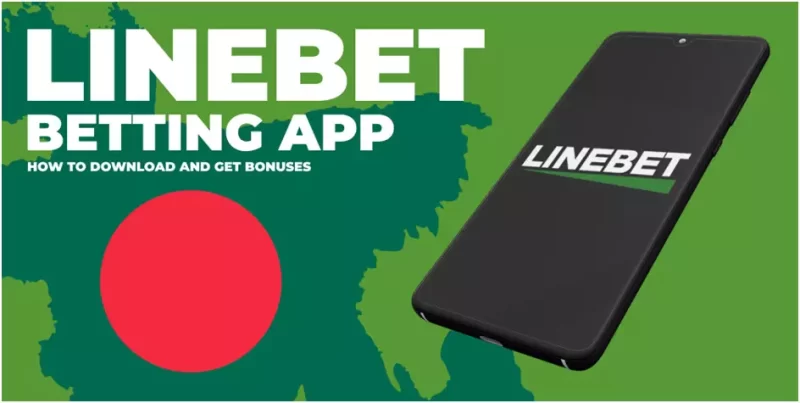Introduction
In the world of online betting and gambling, Linebet Agent play a crucial role as intermediaries between the users and the platform. One intriguing aspect of their involvement is the commission structure that determines how these agents earn rewards. In this comprehensive exploration, we will delve into the intricacies of commissions for agents, unraveling the mechanisms that drive their incentives and ultimately decoding the fascinating world of earnings in the realm of online betting.
Who are Linebet Agents?
Agents act as intermediaries or affiliates who bring users to the Linebet platform. They play a pivotal role in expanding the user base and driving engagement. The agents are not employed by the platform but operate independently, earning commissions based on the activities and revenues generated by the users they bring.
Commission Structures
1. Player Acquisition Commission
Player acquisition is the cornerstone of agent earnings. Agents receive a commission for every new user they bring to the platform. This commission is often calculated as a percentage of the user’s initial deposit or the total amount wagered within a specified period after registration.
Example:
If a Linebet agent brings in a new user who deposits $100 into their account, and the player acquisition commission is set at 20%, the agent earns $20 as a commission.
2. Revenue Share Commission
In addition to the initial player acquisition commission, agents often receive a revenue share commission. This commission is a percentage of the net revenue generated by the players they refer. Net revenue is the total revenue generated by the platform from a player, minus any bonuses, promotions, and transaction fees.
Example:
If a player referred by the Linebet agent generates $1,000 in net revenue for the platform, and the revenue share commission is set at 25%, the agent earns $250 as a commission.
3. Sub-Affiliate Commission
Agents can expand their network by recruiting sub-affiliates. Sub-affiliate commissions are earnings derived from the activities of agents brought into the network by the original agent. This creates a multi-tiered commission structure, providing incentives for agents to build and mentor a team of sub-affiliates.
Example:
If a agent recruits another agent who brings in a new user, the original agent may receive a percentage of the commissions earned by the recruited agent. If the sub-affiliate commission is set at 10%, and the recruited agent earns $100 in commissions, the original agent earns an additional $10.
4. Performance Bonuses
Some Linebet programs offer performance bonuses to agents who achieve specific milestones or exceed predefined targets. These bonuses can be based on the number of new players acquired, total revenue generated, or the overall performance of the agent’s network.
Example:
If a agent surpasses a monthly target of acquiring 50 new players, they might receive a performance bonus of $500.
Factors Influencing Commissions

1. Geographical Location
The geographical location of the players referred by agents can significantly impact commissions. Some regions may have higher or lower commission rates based on the platform’s marketing strategy, competition in the market, and regulatory considerations.
2. User Activity and Retention
Linebet Agent may receive higher commissions for users who exhibit consistent and high levels of activity on the platform. Retention bonuses, which reward agents for retaining users over an extended period, are also common in commission structures.
3. Platform Policies and Terms
The terms and conditions set by the Linebet platform play a crucial role in determining commission structures. Platforms may adjust commission rates, introduce new performance metrics, or modify terms based on their business goals and market dynamics.
4. Quality of Traffic
Agents are often evaluated based on the quality of traffic they bring to the platform. Platforms may differentiate between high-value and low-value players, adjusting commissions accordingly. High-quality traffic is characterized by users who engage frequently, spend more, and exhibit loyalty.
5. Promotional Activities and Campaigns
Agents may participate in promotional activities and campaigns initiated by the platform. Commissions for users acquired during special promotions or campaigns may differ from regular commissions, providing agents with additional earning opportunities.
Challenges Faced
While the commission structure offers lucrative earning potential for agents, they also face certain challenges in navigating the competitive Landscape of online betting.
1. Market Saturation
In regions with intense competition, Linebet Agent may find it challenging to acquire new users. Market saturation can lead to increased acquisition costs and reduced profitability for agents.
2. Regulatory Compliance
The Online betting industry is subject to various regulations, and agents must navigate compliance requirements in different jurisdictions. Adhering to legal and regulatory standards can be complex and time-consuming.
3. User Trust and Retention
Building and maintaining user trust is crucial for agents. The online betting industry is rife with concerns about fairness, security, and transparency. Agents must work towards fostering a positive user experience to ensure long-term retention.
4. Technological Changes
Advancements in technology, such as changes to algorithms or the introduction of new platforms, can impact the effectiveness of marketing strategies employed by agents. Staying abreast of technological changes is essential for adapting and optimizing their approaches.
Future Trends in Agent Commissions

As the online betting landscape evolves, several trends are emerging that will shape the future of Linebet commissions.
1. Blockchain and Smart Contracts
The integration of blockchain technology can bring transparency and efficiency to commission tracking. Smart contracts can automate commission payouts, ensuring timely and accurate payments to agents based on predefined conditions.
2. Data-Driven Commissions
Advancements in data analytics allow this platforms to assess the performance of agents with greater precision. Future commission structures may be more data-driven, taking into account user behavior, engagement patterns, and the overall quality of traffic.
3. Gamification of Commissions
To enhance user engagement and motivate agents, gamification elements may be introduced into commission structures. Achievements, leaderboards, and interactive challenges can make the Commission-earning experience more dynamic and engaging.
4. Cryptocurrency Rewards
The use of cryptocurrencies as a form of commission payout is gaining traction. Linebet agents may have the option to receive commissions in popular cryptocurrencies, providing them with flexibility and potentially reducing transaction costs.
Conclusion
Decoding commissions for the agents reveals a complex yet fascinating world where incentives, strategies, and challenges converge. As online betting continues to thrive, agents will play an integral role in driving user acquisition and engagement. Understanding the dynamics of commission structures is essential for both aspiring and experienced agents, as it empowers them to navigate the competitive landscape and Maximize their earning potential in this dynamic industry.
